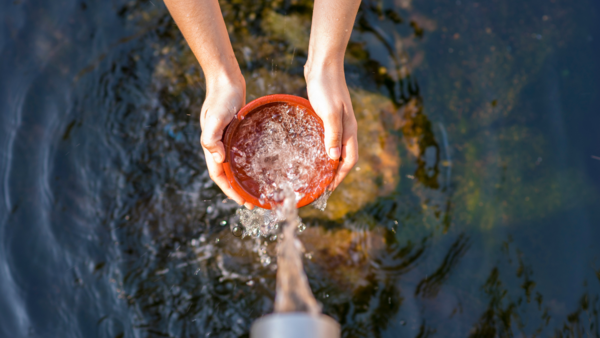Staying hydrated is essential for good health, but like everything, there can be too much of a good thing. While water is vital for our bodies to function correctly, overconsumption can lead to a potentially dangerous condition known as water intoxication. The most recent case of
water intoxication
comes from the United States, where a mother of 3 kids passed away after drinking
too much water
too fast, as per Inside Edition.
Here is all you need to know about what water intoxication is, the risks associated with it, and how much water is too much.
What is water intoxication?
Water intoxication, also known as hyperhydration or water poisoning, occurs when you drink too much water in a short period. This excess water dilutes the
sodium levels
in your bloodstream, leading to an imbalance called
hyponatremia
. Sodium is an essential electrolyte that helps regulate water balance in and around your cells. When sodium levels drop too low, your body’s cells start to swell, which can lead to serious health problems, including brain swelling, seizures, coma, and even death.

Image: Canva
What are the symptoms of water intoxication?
The symptoms of water intoxication can vary but often include:
- Nausea and vomiting
- Headache
- Confusion and disorientation
- Muscle weakness or cramps
- Seizures
- Unconsciousness
These symptoms are a result of the cells in your body, particularly in your brain, swelling due to the diluted sodium levels.
How much water is too much?

Image: Canva
The amount of water that can lead to intoxication varies from person to person. Factors such as body weight, activity level, and overall health play a significant role. However, it’s generally agreed upon that drinking more than 1 litre of water per hour over several hours can put you at risk for water intoxication.
A well-known case that defines the dangers of excessive water intake is the tragic death of Jennifer Strange in 2007. She participated in a radio station contest called “Hold Your Wee for a Wii,” which required contestants to drink large amounts of water without urinating. Jennifer succumbed to water intoxication after consuming an estimated 6 litres of water in a short period.
Several studies have highlighted the risks of
overhydration
. A study published in the New England Journal of Medicine in 2005 investigated cases of hyponatremia among marathon runners. The study found that out of 488 runners who completed the 2002 Boston Marathon, 13% had hyponatremia, with 0.6% suffering from critical levels that posed severe health risks.
Another study published in the Clinical Journal of Sports Medicine in 2015 reviewed instances of hyponatremia among athletes. It concluded that excessive
water consumption
, especially during endurance events, significantly increased the risk of developing this dangerous condition.
How to prevent water intoxication?
Preventing water intoxication is straightforward: balance your water intake with your body’s needs. Here are some tips to avoid overhydration:
- Thirst is a natural indicator that you need water. Drink when you’re thirsty and avoid forcing yourself to drink large quantities of water if you’re not.
- A useful indicator of hydration status is the colour of your urine. Light yellow or pale straw-coloured urine typically indicates proper hydration. Dark urine suggests dehydration, while clear urine may indicate overhydration.
- Adjust your water intake based on your physical activity and the environment. You’ll need more water when exercising or in hot weather, but be mindful not to overdo it.
- During extended periods of physical activity, consider beverages that contain electrolytes to help maintain sodium levels and prevent hyponatremia.












 English (US) ·
English (US) ·